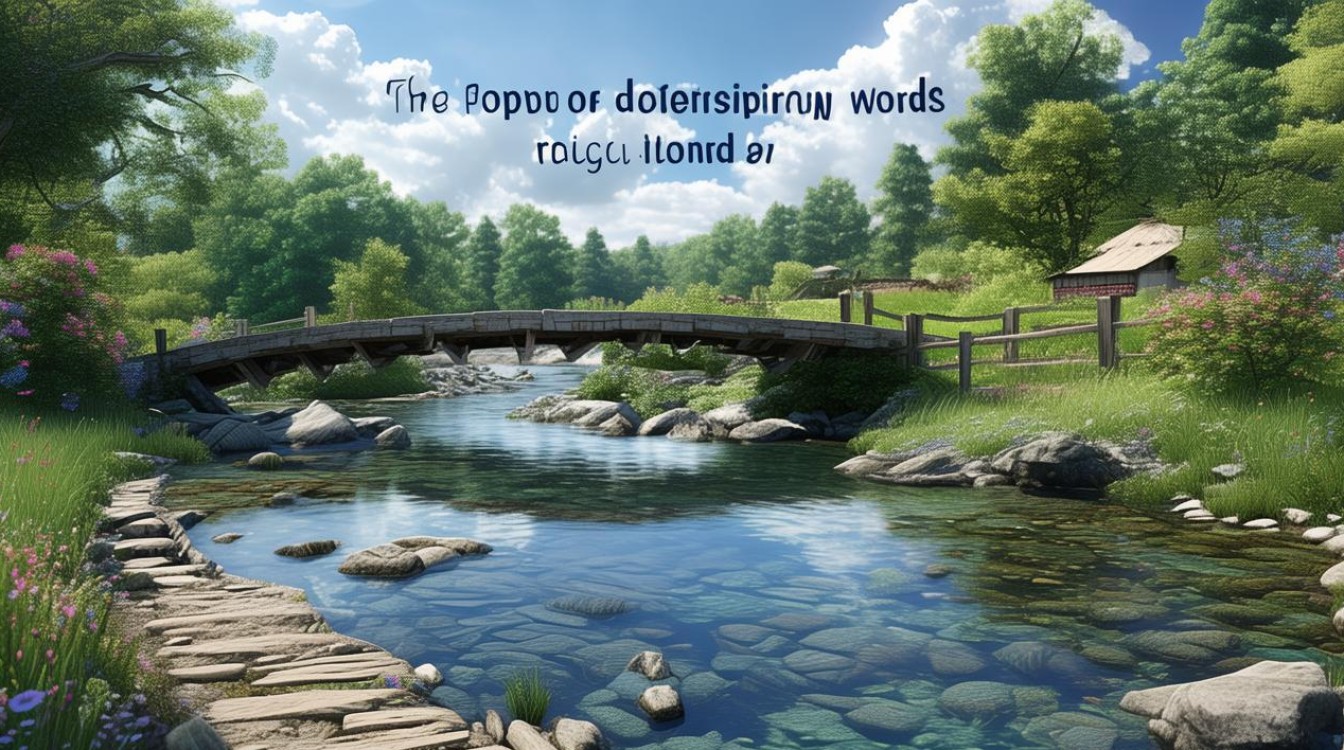Words shape our world. They paint pictures, evoke emotions, and create connections. Descriptive English words, in particular, add depth and clarity to communication, allowing speakers and writers to convey precise meanings. Whether crafting a story, writing marketing copy, or simply expressing thoughts, choosing the right descriptive words elevates language from ordinary to extraordinary.

Why Descriptive Words Matter
Descriptive words serve multiple purposes:
- Enhancing Clarity – Instead of saying "a big tree," describing it as "a towering oak with gnarled branches" provides a vivid image.
- Engaging the Senses – Words like "fragrant," "crisp," or "melodic" activate smell, touch, and hearing, making descriptions immersive.
- Conveying Emotion – Terms like "serene," "chaotic," or "exhilarating" instantly communicate mood.
- Improving Persuasiveness – In marketing or storytelling, strong descriptors make content more compelling.
Categories of Descriptive Words
Descriptive vocabulary spans multiple categories. Here are some of the most impactful:
Visual Descriptions
These words help readers "see" what’s being described:
- Luminous (glowing brightly)
- Majestic (grand and impressive)
- Serpentine (twisting like a snake)
- Glistening (shining with reflected light)
Example: The luminous moon cast a glistening trail across the serpentine river.
Auditory Descriptions
Sounds come alive with the right words:
- Resonant (deep and full)
- Cacophonous (harsh and discordant)
- Melodious (pleasantly musical)
- Whispering (soft and hushed)
Example: The resonant hum of the cello contrasted with the whispering leaves.
Tactile Descriptions
Words that evoke touch:

- Velvety (soft and smooth)
- Prickly (sharp and irritating)
- Slick (smooth and slippery)
- Gritty (rough and coarse)
Example: The velvety petals brushed against her skin, while the gritty sand clung to her feet.
Olfactory & Gustatory Descriptions
Smell and taste descriptions enrich sensory writing:
- Aromatic (pleasantly fragrant)
- Pungent (strong and sharp)
- Zesty (lively and tangy)
- Bland (lacking flavor)
Example: The aromatic spices mingled with the zesty citrus, overpowering the bland broth.
Emotional & Personality Descriptions
Words that define feelings and character traits:
- Whimsical (playfully quirky)
- Stoic (unemotional, enduring)
- Fervent (passionate and intense)
- Melancholic (sad and reflective)
Example: His fervent speech contrasted with her melancholic silence.
How to Use Descriptive Words Effectively
While descriptive language enhances writing, overuse can make prose feel heavy. Here’s how to strike a balance:
Be Specific, Not Excessive
Instead of stacking adjectives, choose one powerful word:

- Weak: The very old, really big, dark brown wooden door
- Strong: The ancient oak door loomed in the dim hallway.
Show, Don’t Just Tell
Rather than stating emotions outright, use descriptive words to imply them:
- Telling: She was scared.
- Showing: Her fingers trembled, and her breath came in shallow gasps.
Match Tone to Context
A formal document might use "exquisite" or "meticulous," while casual writing could favor "snazzy" or "chill."
Avoid Clichés
Phrases like "bright as the sun" or "cold as ice" lack originality. Instead, find fresh comparisons:
- Her smile was incandescent, like dawn breaking over frost.
Expanding Your Descriptive Vocabulary
Building a strong lexicon takes practice. Here are some ways to improve:
Read Widely
Classic literature, poetry, and modern fiction expose readers to rich language.
Use a Thesaurus (Wisely)
A thesaurus helps find synonyms, but always ensure the word fits the context.
Keep a Word Journal
Jot down striking words encountered in daily life and experiment with them in writing.

Practice Descriptive Writing
Set a timer and describe an object, scene, or emotion using as many sensory words as possible.
Common Pitfalls to Avoid
Even skilled writers can misuse descriptive language. Watch for these mistakes:
- Overloading Sentences – Too many descriptors make reading cumbersome.
- Mismatched Intensity – Calling a drizzle "torrential" feels exaggerated.
- Vagueness – Words like "nice" or "good" lack impact.
The Lasting Impact of Strong Descriptions
Words linger in memory. A well-chosen adjective or evocative phrase can transform a forgettable sentence into something resonant. Whether writing fiction, business content, or personal reflections, mastering descriptive words sharpens expression and deepens engagement.
Language is a tool, and descriptive words are its finest instruments. The more precisely we wield them, the more vividly our ideas come to life.


